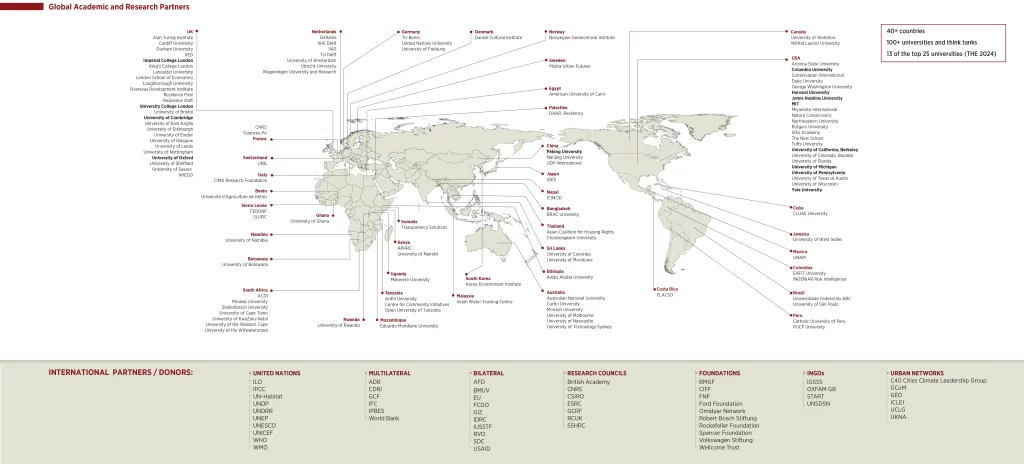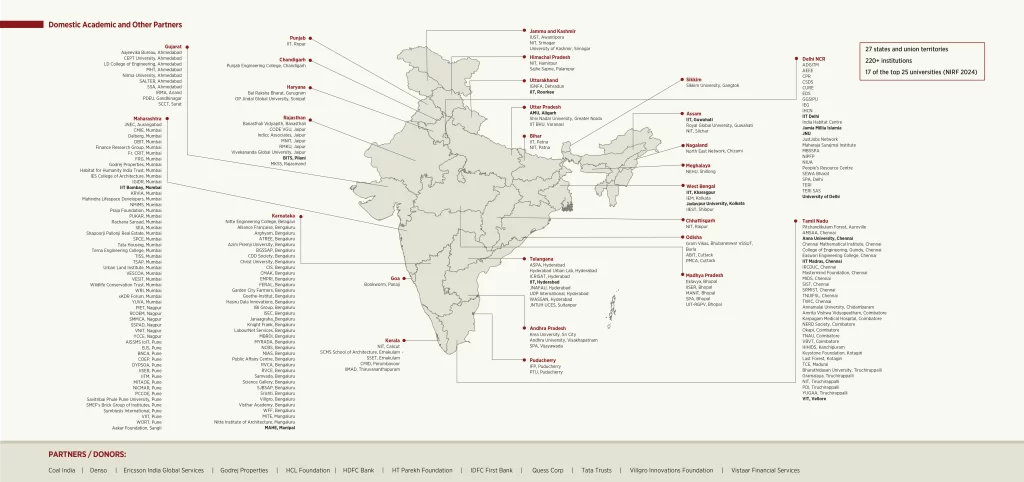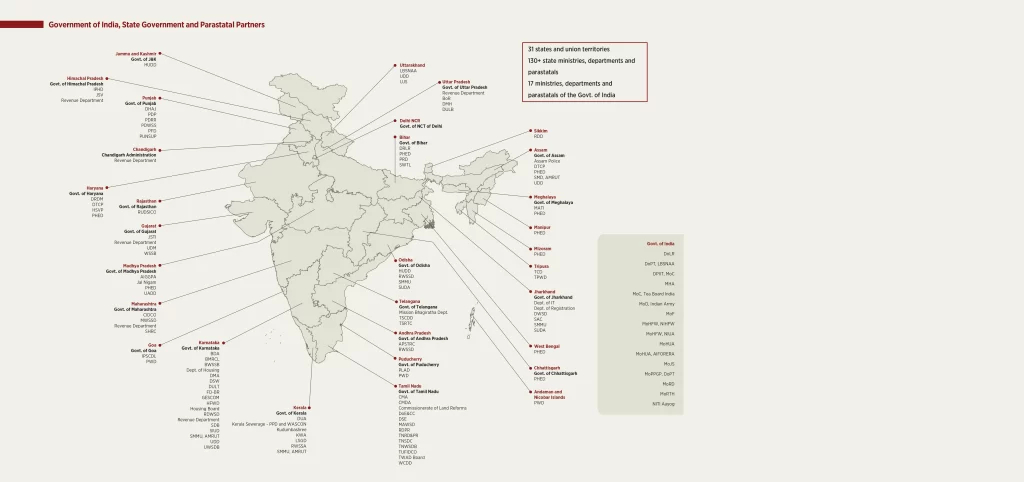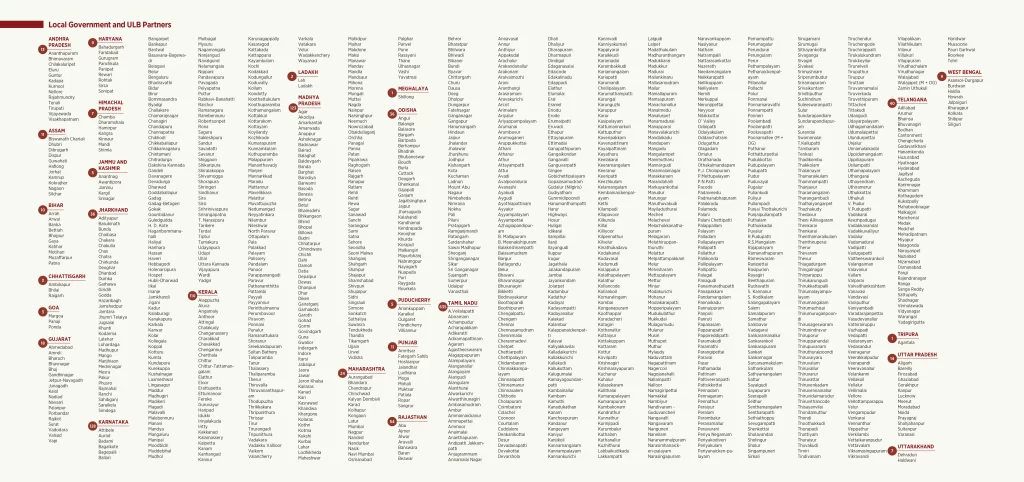In an increasingly interconnected world, networks today are, more than ever, a key part of IIHS’ commitment to being an interdisciplinary teaching, research and practice institution. There are three kinds of networks that are critical to our mission:
- Networks of knowledge, with international and domestic universities and research institutions
- Networks of practice, with governments and private actors
- Networks of people, with citizens and prospective learners
Networks of Knowledge
IIHS has established long-term collaborations for teaching and research through partnerships with leading global universities, including University of Oxford, Cambridge University, Harvard University, Yale University, University of California, Berkeley, Columbia University, Massachusetts Institute of Technology (MIT), University College London (UCL), University of Cape Town (UCT), as well as global multilateral institutions such as the World Bank and several UN agencies.
IIHS also has partnerships with several leading Indian academic institutions including seven Indian Institutes of Technology (IITs), five Central universities, the Tata Institute of Social Sciences (TISS), CEPT University and public research institutes like the Indian Institute of Tropical Meteorology (IITM), and the Tamil Nadu Agricultural University (TNAU).
View our collaborative research projects and the unique curriculum development network that IIHS convened to shape proposed new degrees in urban practice.
Networks of Practice
Two main kinds of networks of practice exist at IIHS. The first is with governments and public agencies mainly through the IIHS Capacity Development Programme, and the other with a range of private and civil society actors that are partners, funders and clients in projects in the IIHS Practice Programme.
Governments and public agencies: Through the IIHS Practice, Research and Capacity Development Programmes, IIHS has built a strong network with Central, state and local governments as well as public bodies. These include Government of India ministries and departments (e.g., Ministry of Housing and Urban Affairs; Department of Land Resources; Department of Personnel and Training), state governments, public sector enterprises and parastatals (e.g., HUDCO and CIDCO), as well as the Indian Army.
International partners: IIHS has a range of engagements both domestically and internationally with international development agencies, think tanks and UN agencies as a knowledge partner and through practice projects. Its international engagements are particularly strong—within the UN Sustainable Development Solutions Network (SDSN), for example, or presence at the IPCC—that place it at the highest levels of global governance and urban policymaking. View details of our practice projects.
Networks of people
The third key type of network critical to IIHS is the kind that is the most pervasive, diverse and expansive—networks of people. There are four important groups: citizens across diverse geographies; learners and scholars; individual change-makers and entrepreneurs; and IIHS Alumni.
IIHS builds both virtual and city-based communities of people who are engaged, or wish to engage, with a range of urban issues. These are vital to knowledge dissemination, deepening public discourse, as well as enabling citizen action.
Sign up for our newsletters, follow us on Facebook, Instagram and X, watch videos on the IIHS YouTube channel, and access our publications in our Knowledge Gateway.











